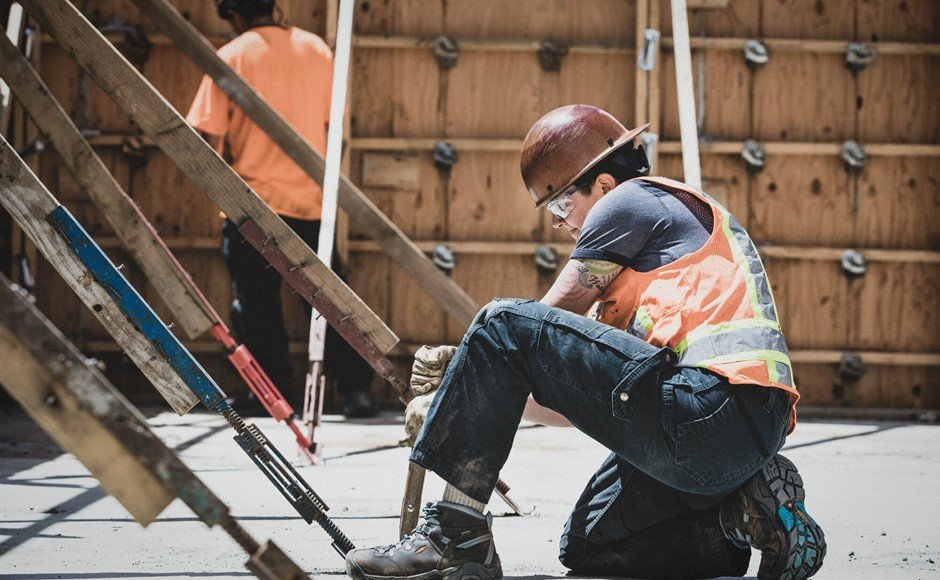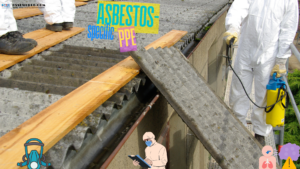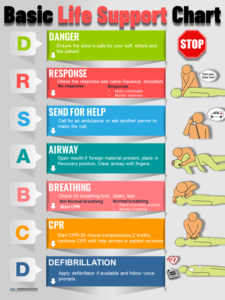Safety Toes: Materials That Keep Your Feet Safe
6 min readPersonal protective equipment (PPE) is the last line of defense between a worker and a known hazard. Most people are familiar with the safety shoes and work boots that protect many worker’s feet, but not everyone knows a whole lot about the safety toes that provide additional protection to the toes.
In this article, we’ll look at why safety toes are important and the materials that give them an extra level of protection.

Takeaway: Soft safety toes are available on the market, but they don’t meet the impact and compression requirements that are required for steel, aluminum, and composite toes.
Your Toes Deserve Protection
Your toes do a lot of work, and they have a lot of parts that can be injured, damaged, or destroyed by workplace accidents. There are, of course, ten of them. And like fingers, they are jointed and have bones called phalanges. They connect to the foot with muscles and tendons (most people don’t think about it too much, but toes are quite moveable and flexible).
Their job – and it’s a heavy one – is to support our body weight while also helping the foot provide some shock-absorption or thrust to help us move.
Another critical function is balance. Anyone who’s ever injured a toe knows it makes it hard to walk as you normally would. That’s because your toe affects your gait, and that has an impact on your body’s balance.
Because of their position, your toes can be vulnerable to various hazards, including dropped objects and crushing injuries. The more of your work shift is spent standing, walking, or climbing, the more frequently your toes will be exposed to hazards. And of course, the more time you need to spend on your feet for work, the bigger the problem it will cause if one or more of your toes sustains a serious injury.
Those injuries are a problem for employers, too. The Bureau of Labor Statistics reports that “some 60,000 foot injuries are responsible for keeping people from work every year. The average cost of one of these injuries with lost workdays is $9,600, and 80 percent of foot injuries are caused by objects that weigh 30 pounds or less”.
Safety Toe Materials – How Your Safety Footwear Protects You
To keep your toes safe, many safety shoes and work boots come equipped with a safety toe that encapsulates your toes with a protective material.
Adequate safety toes must meet the ASTM F2412-18/ASTM F2413-18 impact and compression safety standards. Meeting the I/75 standards and C/75 compression standards means the safety toe can withstand having 50 solid pounds of weight dropped on them from a height of 18 inches, and withstand 2,500 pounds of compression.
Here are the basic materials your safety footwear manufacturer might use to create a safety toe that meets these standards.
Steel Toes
The steel toe (or the toe box or cap) has been around for a long time, both as an exterior (overshoe or toe guard) and interior component. It’s such a classic, in fact, that people often use the word “steel toe” to refer to any safety toe, regardless of the materials used to make them.
Steel toes use lighter steels that have met testing requirements. The toe might also have other design features, including rubber comfort linings and comfort strips that provide additional protection from the edges and interior of the toe box.
Steel toes have a long history and they still have a reputation for being hot, heavy, and uncomfortable to walk in all day. Some also believe that they can cause an issue when working in extremely cold environments. That may have been true of older steel toed footwear, but these design issues have been largely overcome. Today’s state-of-the-art steel toes are built lighter and more comfortably without compromising safety.
Military Grade and Aluminum Toe Caps
Yes, military grade means they have also met a military specification.
Like steel toes, aluminum toe caps are also available built into the shoe or boot or as an overshoe or toe guard.
Despite the name, aluminum toe caps may really be built from a high-grade alloy that has aluminum as one of its major components.
And yes, they are up to 35% lighter than steel . They also transfer heat and cold less than a traditional steel toe. That makes them a good option if you need safety toes for walking all day, every day.
The material is also easier to design with and less bulky. That allows for a more discreet toe box.
Composite Safety Toes
As the name implies, composite safety toes are made up of several different kinds of materials. They may include, among other things:
- Fiberglass
- Kevlar
- Plastic
- Nylon
- Carbon-fiber
All must meet the same testing requirements.
The material used does make composite toes bulkier, which may present a style issue. Steel toes can usually be incorporated into a shoe or boot’s design, while the thicker nature of the composite toe cap makes it more visible.
Composite toes can be heavier than aluminum toes, but they are up to 15% lighter than steel toes.
One of the important features of composite toes is that they are non-metallic and non-magnetic. That means they won’t set off a metal detector, which is great for anyone who has to step through one regularly as part of their job, like airport security staff. It also won’t transfer heat or cold the way metal does, which makes them better suited for extreme temperature environments.
Soft Toes
You can also get footwear with soft toes, or non-safety/non-protective toes.
These are covered by the ATSM F2892-18 EH Standard, which states, in part:
The specification contains performance requirements for footwear to protect workers’ feet from the following hazards by providing: (1) conductive properties (Cd) which reduce hazards that may result from static electricity buildup; and reduce the possibility of ignition of explosives and volatile chemicals; (2) electric hazard protection (EH), to protect the wearer when accidental contact by stepping on live electric wires; (3) static dissipative properties (SD) to reduce hazards due to excessively low footwear electrical resistance that may exist where SD footwear is required; (4) puncture resistance (PR) footwear devices.
This type of safety footwear deals with a different spectrum of protection than the other safety toes on this list. Soft toes do not meet the toe protection requirements for impact and compression.
When to Replace Safety Footwear
Safety shoes and boots need to be replaced if the safety toe has been subject to heavy impact.
In the case of steel and aluminum toes, the damage to them will be obvious. They will dent, and so will the leather that is glued to the safety toe.
Composite toes, however, don’t always give you that kind of visual sign that it should be replaced. Instead, the impact might create cracks in the material that are not visible on the surface. Although the damage is not readily visible, it is enough to compromise its effectiveness.
Selecting the Right Safety Toe
The type of safety toe you need is going to depend on several factors, such as:
- The regulations and laws in the jurisdiction where they will be used
- The standards and rules set by the employer or company where the work is being done, or across the corporation
- Environmental conditions
- The need for features that meet the nature of the work, such as non-metallic toes for airport workers
- Style, fit, comfort, and wearability – Keen Utility shoes offer a larger toe box and asymmetrical design for optimal comfort
- Price
- Serviceability, life cycle and wear, maintenance, care, and cleaning
It’s also worth consulting manufacturers, distributors, and suppliers. They are a must-use resource for today’s safety professional. Tell them about your hazard analysis and the risks to your workers’ toes. They’ll be able to help you choose the most suitable material.




